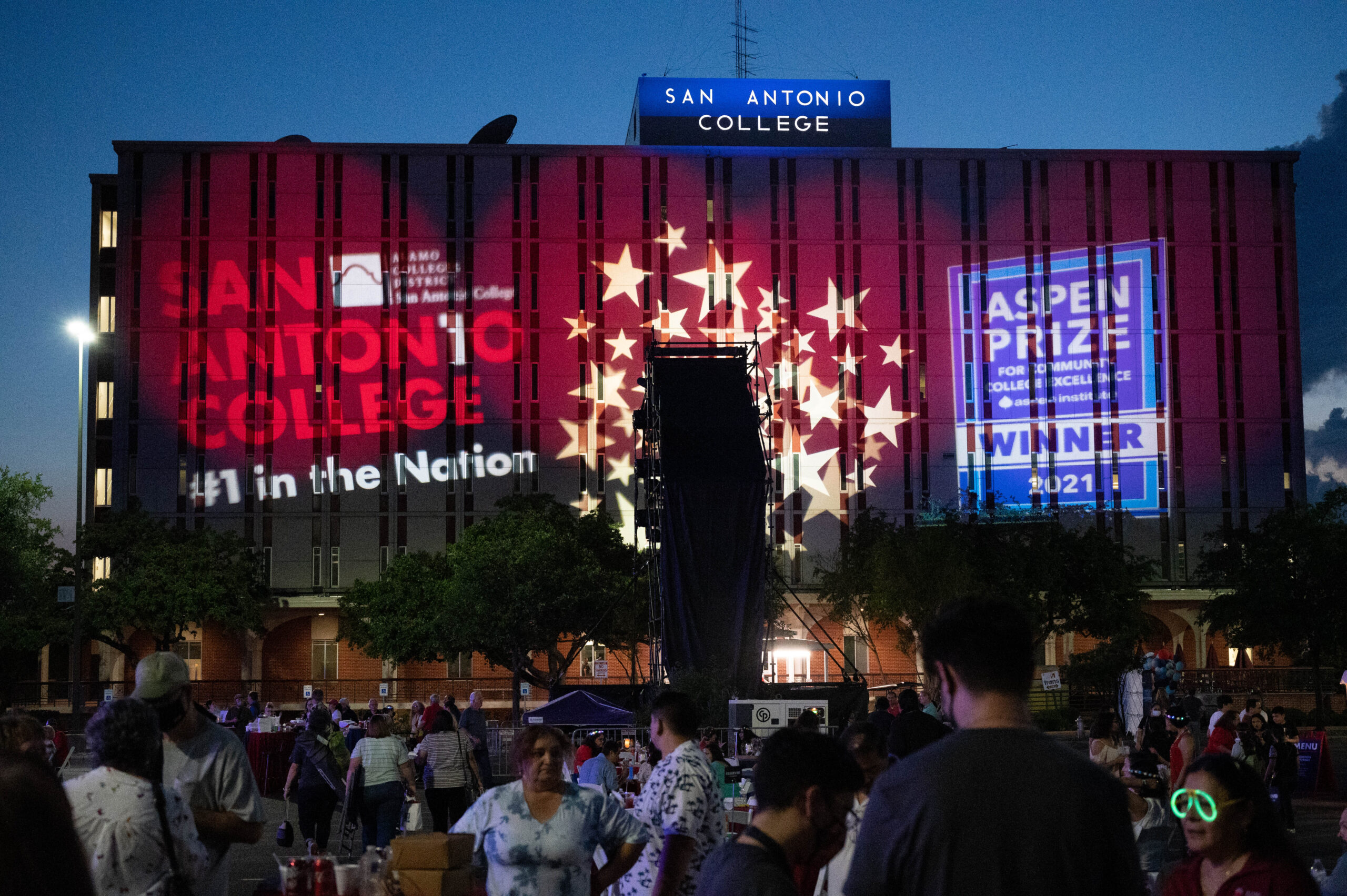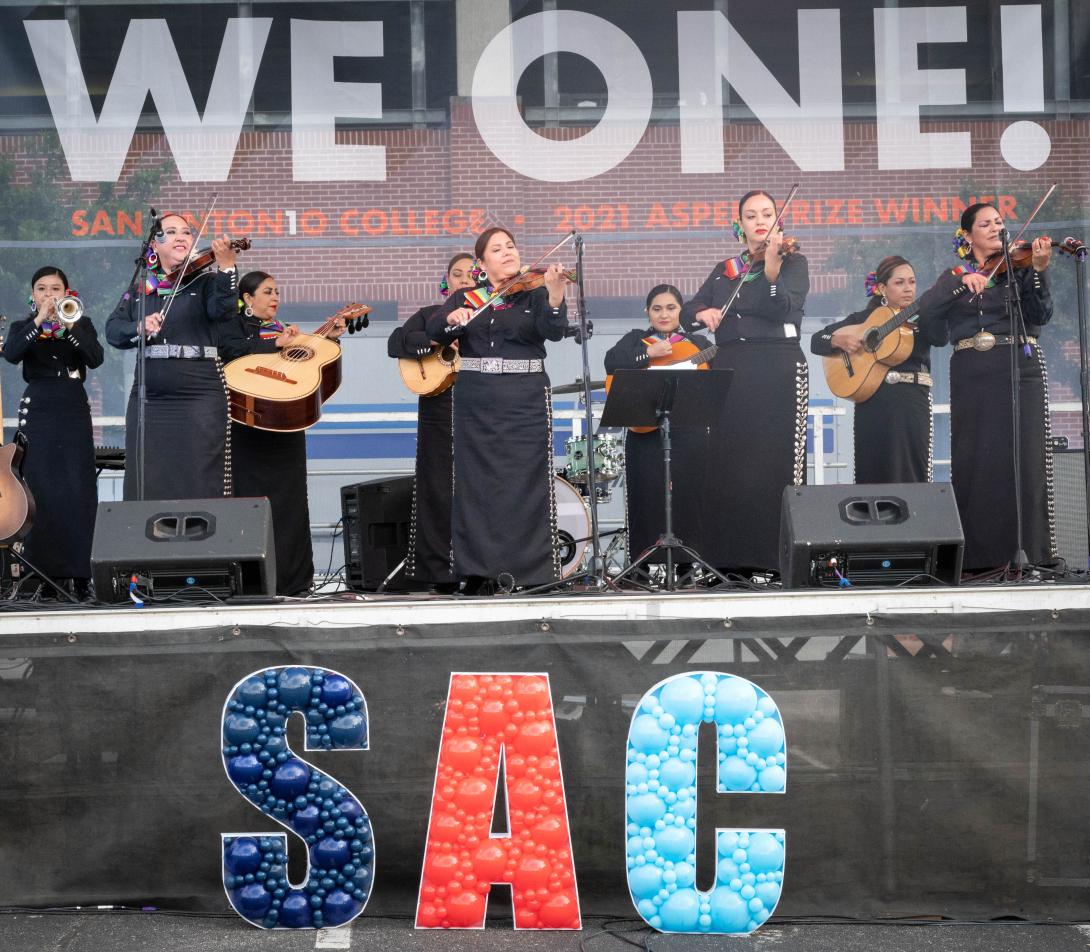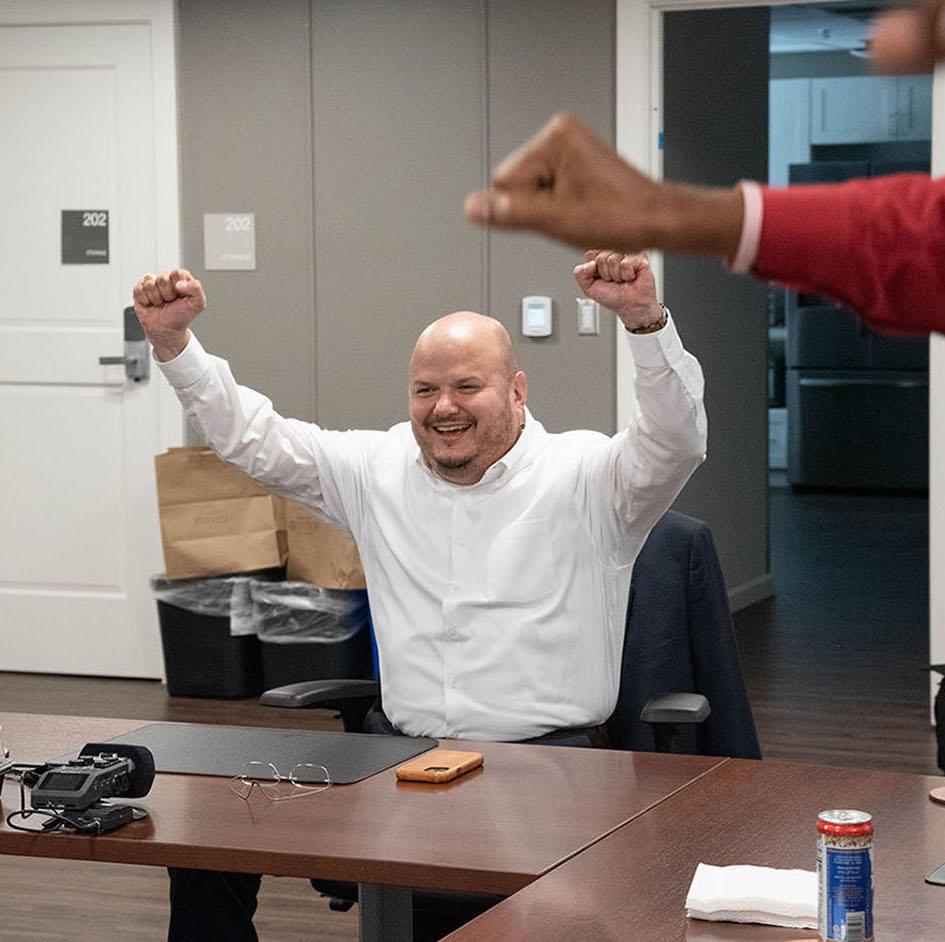
Daring to Be Extraordinary
Blog Post
San Antonio College was honored last year to win the Aspen Prize for Community College Excellence—the first college in Texas to do so. The process that culminated in this recognition led us to examine nearly everything we do and why we do it—and confirmed for us that we are on the right path, pushing ourselves to improve for our students and deliver on our promises to our community.
After we were named a finalist, the Aspen team came down for a site visit and interviewed more than 75 folks on our campus. That was something we had never experienced before. The in-depth process affirmed that we are on a trajectory of excellence and helped us reflect on how that excellence translates back into our community in the form of talent development and economic mobility. Aspen didn’t sugarcoat anything for us—they helped us see right where we stand, which has been vital as we plan continued improvements.
I want to share a few takeaways from our journey toward excellence:

Establish a shared vision
Success at San Antonio College means that every student can achieve their academic, career, and personal goals. That's a mouthful for the college and a big responsibility for the community. I know that every student who comes to our front doors is looking for something: for a better way of life, for a new opportunity. It’s our job to uncover and clarify those goals, and to meet students’ needs and get them where they need to go, whether to a transfer university or a great job. To do this, we’ve had to shed traditional, siloed ways of doing things. Academic advising, career counseling, administration, faculty, the financial aid experts—we all work together now. We hold a shared belief that we are in the student success business.
Daily behaviors add up to big change
When I started as president eight years ago, I saw a lot of deficit-based thinking on our campus. One of the first big changes I pushed for was reframing: Rather than focusing on what our students lack, we emphasize their assets—what they excel at. We don’t accept the status quo (“our students aren’t prepared, so they can’t succeed”). Instead, we create a shared vision of an ideal future (“our students come to us and thrive”). And most importantly, we don’t accept accolades like the Aspen Prize as a sign that we’re done, but rather as a confirmation that our work is worthwhile, and that we should collectively double down on our commitments.
The Aspen Prize process helped us solidify the frameworks for new habits across staff, faculty, and administration. We now have a shared language: the language of loving and caring for our students. It grounds everything we do.
No more initiatives
Colleges love initiatives, don’t they? But initiatives can wear people out. They sometimes feel like impulsive grasps at the latest ideas, short-term attempts to solve long-term problems. We embed all our efforts into what we call “process improvement.” And process improvement is never done!
In 2015 we created a performance excellence division, with a dean, Dr. Francisco Solis, who had experience working on the college’s strategic plan and who previously served as a U.S. Navy Judge Advocate General Corps Officer. He’s backed by highly trained, highly specialized faculty, and his division enables us to assess what’s working—and what’s not—as we provide professional development to expand on wins and solve challenges. The performance excellence division is our integrated support system for understanding and communicating why assessing student outcomes is so important to our journey toward excellence. We’ve made this a clear priority by placing the office of the Dean of Performance Excellence right outside mine.

Give your students excellence
We serve a community that has endured poverty. A vibrant and hard-working community, but one where many young people have had to accept less-than-ideal situations. A lot of our students may come to our college thinking: “I'm not college material but I think I can start here.” We wanted to raise the bar, to deliver the best to our students. We’ve seen proof that when students begin to experience excellence—in instruction, in student services—that it's contagious. They want more. They demand it for their family. They demand it in the careers they pursue when they graduate. And that's how you start to transform your community. When we value our students, they can fully value themselves.
Take action on course-level data
By now we’ve all heard it many times: “Data-driven decision making!” “Data-informed strategy!” We know data is critical to reforms. Yet we sometimes get fixated on data and lose sight of the fact that every data point represents a human life, a personal struggle. Someone who has made sacrifices against all odds to be at our college. That’s why we delve deep into the details—and bring faculty along with us.
A few years back, our director of institutional research came to me and asked, “How can we ethically register a student in a class that has an eighty percent fail rate?” That got me thinking, and led me to the important part of the question: How can we have such high fail rates? We cannot—we must support students to success, not flunk them out with an inflexible view of rigor. So we worked on a dashboard that faculty review weekly. We help instructors learn to see red flags and learn how to help students overcome those flags, with tutoring, supplemental instruction, faculty mentoring, and student support wraparound services. And guess what? Next year, we’re making that data publicly available.
The core reason we assess and monitor course success rates is to ensure that learning is taking place. We want our students to stay on track, and we know that course completion is one important lever we have to keep them enrolled and on a clear pathway to transfer or to graduate on time with a credential that can help them land a family-sustaining job.
A final point: Make sure everyone working on your campus has an educator’s heart.
I mean everyone. I interview each and every full-time hire we make. I ask, “What does the mission of this college mean to you?” I’m looking for a heartfelt answer. I’m looking for proof that, whether this is a facilities manager or a calculus professor, they truly care about helping students thrive.
I say it daily: This work doesn’t end. We achieve goals, we toast successes, we celebrate our students, but the work of delivering excellence to students will continue to evolve. We’re never done. And what a gift that is—to keep collaborating and putting our hearts into the important work of changing lives for the better.
Dr. Robert Vela is president of San Antonio College in Texas, the flagship in the Alamo Colleges District, which is made up of five colleges.
